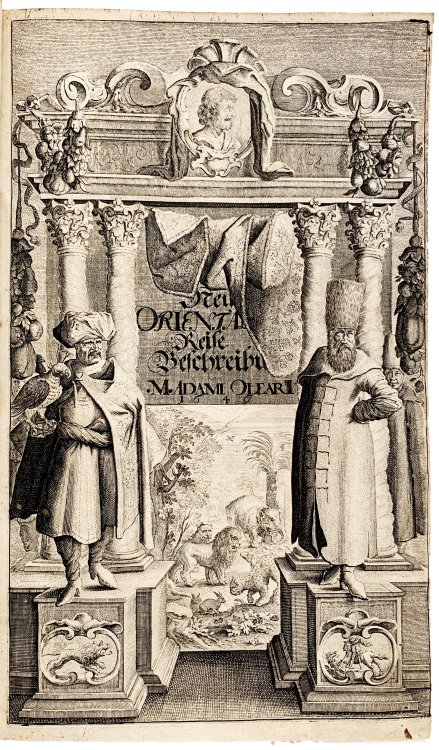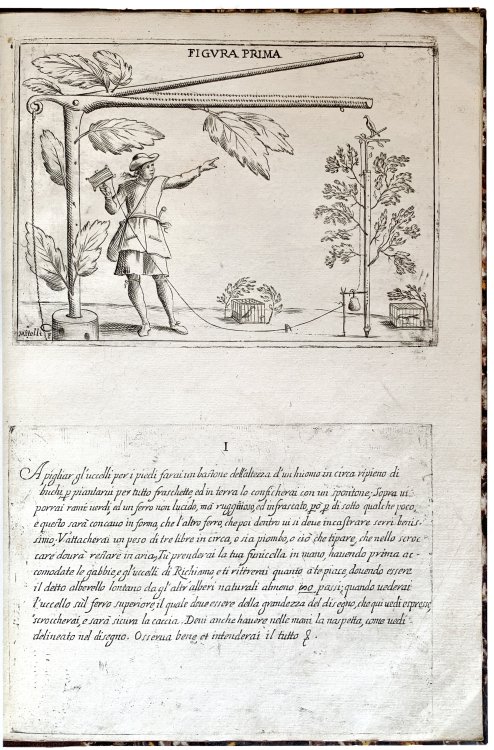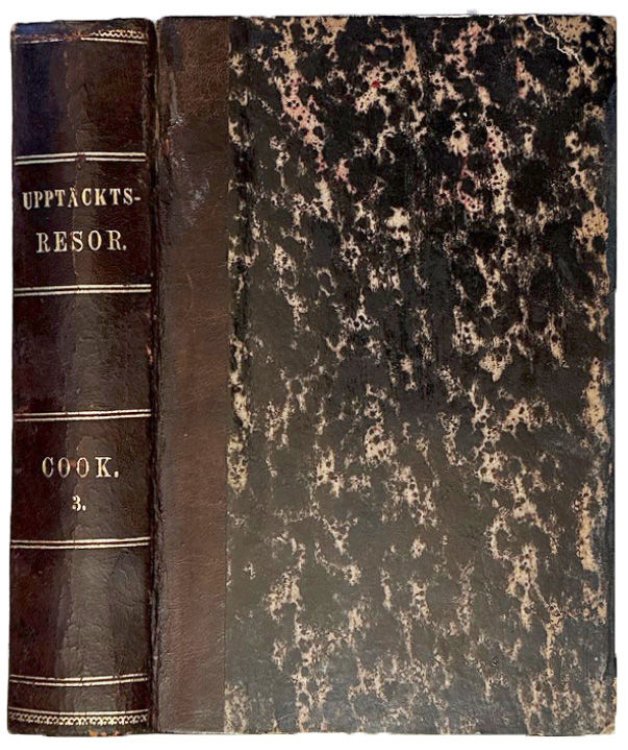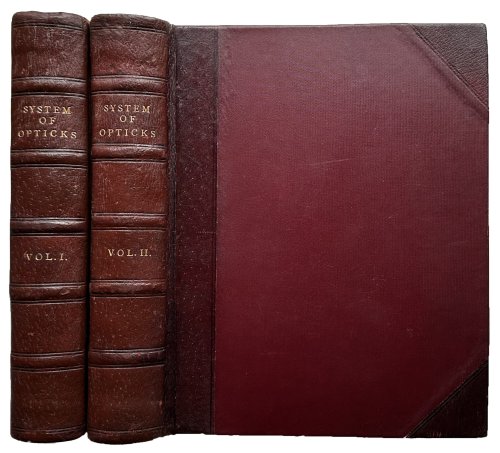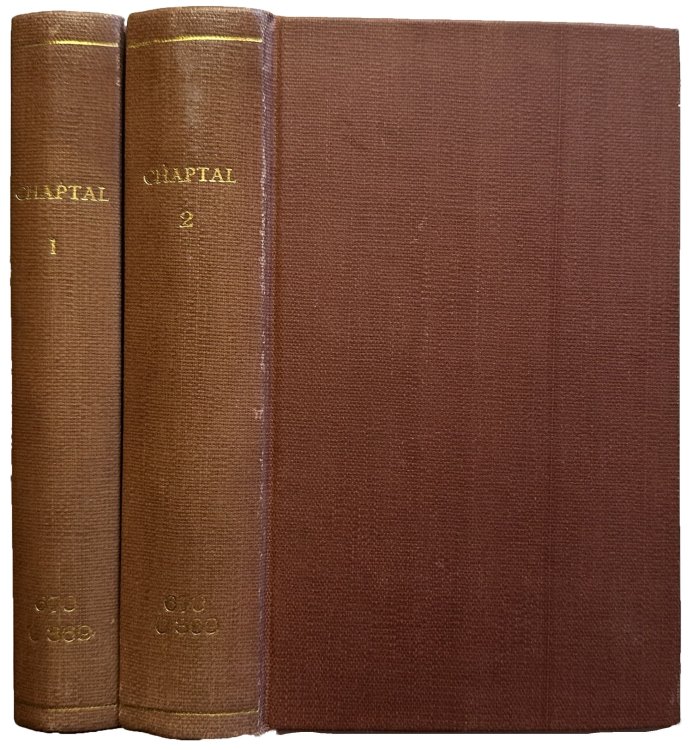
De l'Industrie Francoise.
$135.00 USD • Used
2 volumes. 8vo. xlviii, 248; [iv], 462, [iii] pp. Half-titles, 4 folding tables. Modern buckram. Early ink ownership signature of Adam Seybert; bookplate of the Franklin Institute Library (gift of...
Store: JeffWeberRareBooks [View Items]
2 volumes. 8vo. xlviii, 248; [iv], 462, [iii] pp. Half-titles, 4 folding tables. Modern buckram. Early ink ownership signature of Adam Seybert; bookplate of the Franklin Institute Library (gift of Henry Seybert), with their blind perforated stamp on each title-page. Very good. Signed by US Congressman Adam Seybert (d.1825). [090] This book is one of the first thorough surveys of French industry and commerce. Chaptal is known as one of the first to adhere to Lavoisier's anti-phlogiston doctrine. He "had a lifelong interest in chemical manufacture and achieved success in its commercial as well as its scientific side. He set up the first French factory for the commercial production of sulphuric acid," founded the Ecole des Arts et Metiers, and was Napoleon's Minister of the Interior." - Trevor Williams, A Biographical Dictionary of Scientists, (1969) p. 104. / Jean-Antoine Chaptal was a French chemist and statesman. He established chemical works for the manufacture of the mineral acids, soda and other substances. In Elemens de Chymie (published 1790) he coined a new word for the gas then known as "azote" or "mephitic air." Chaptal's word was nitrogene, which he named for nitre, the chemical which was needed for the production of nitric acid which had been found to contain the gas, and thus possibly (according to theory) to be the oxidized derivative of it. Chaptal's new term for the gas then quickly passed into English as nitrogen. Chaptal was especially a popularizer of science, attempting to apply to industry and agriculture the discoveries of chemistry. In this way, he contributed largely to the development of modern industry. The process of adding sugar to unfermented wine in order to increase the final alcohol level is known as "chaptalization" after him. PROVENANCE: "Henry Seybert (1801 1883), early in life, was a mineralogist and active member of the American Philosophical Society. In 1825, however, when his father died, Henry inherited a large estate and turned his attention to philanthropy. He was deeply interested in the "spiritualism" movement and worked throughout his life to advance its cause. At his death he endowed a chair of philosophy at the University of Pennsylvania, as well as a famous commission, which he directed to study the truth or falsehood of spiritualism. For additional biographical information see Moncure Robinson, "Obituary Notice of Henry Seybert," published in the Proceedings of the American Philosophical Society for 1883, at pages 241-63." His father was Adam Seybert (1773-1825), a United States Congressman. This book is signed with his name. "He became very wealthy through inheritance and investments he had in his lifetime." Adam Seybert represented Pennsylvania in the U.S. House of Representatives from October 10, 1809, to March 3, 1815. "He completed the medical course at the University of Pennsylvania at Philadelphia in 1793 and continued studies in Europe, where he attended schools in Edinburgh, Gottingen, and Paris. He returned to Philadelphia and devoted himself to chemistry and mineralogy."
Product Info
Publisher: Antoine-Augustin Renouard, 1819.
Year: 1819
Type: Used
Binding: Softcover
Signed
Seller Info
JeffWeberRareBooks
Address: Place Pury 9 Neuchâtel,
Website: https://www.weberrarebooks.com
Country: Switzerland



